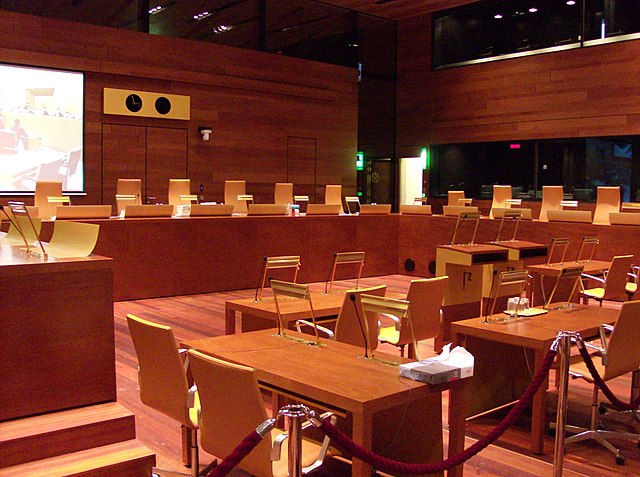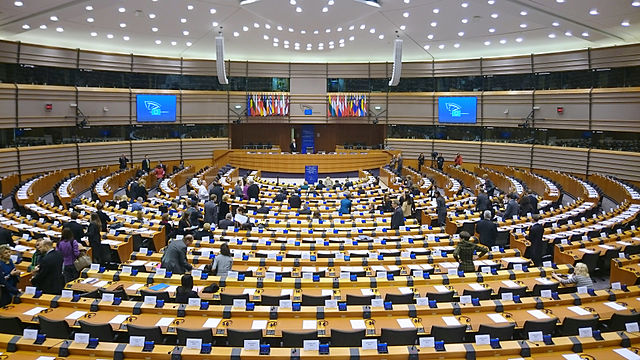European Court of Justice
The European Court of Justice (ECJ), formally just the Court of Justice, is the supreme court of the European Union in matters of European Union law. As a part of the Court of Justice of the European Union, it is tasked with interpreting EU law and ensuring its uniform application across all EU member states under Article 263 of the Treaty of the Functioning of the European Union (TFEU).
Court of Justice headquarters
Medium court room in the Ancien Palais building of the Palais de la Cour de Justice complex
Image: Massimo Pilotti 1927
Image: André Donner (1971)
European Union law is a system of rules operating within the member states of the European Union (EU). Since the founding of the European Coal and Steel Community following World War II, the EU has developed the aim to "promote peace, its values and the well-being of its peoples". The EU has political institutions, social and economic policies, which transcend nation states for the purpose of cooperation and human development. According to its Court of Justice, the EU represents "a new legal order of international law".
The EU has a population of 448 million people, the second largest combined economy in the world, and a very high rate of human development. A recipient of the 2012 Nobel Peace Prize, the EU is committed to "human dignity, freedom, democracy, equality, the rule of law and respect for human rights".
The Treaty of Rome, signed in Musei Capitolini was the first international treaty that envisaged social, economic and political integration, within limited fields, for nation-states.
After the 2016 Brexit poll, there were protests both for and against the UK leaving the EU and there was considerable division on how Brexit should be enacted. Britain finally left the union in 2020, where the government opted to limit the relationship to an international free trade agreement.
The European Parliament, elected by EU citizens, makes new laws with the Commission and Council. To address the EU's asserted "democratic deficit", Parliament increasingly assumed more rights in the legislative process. Proposals have not yet been adopted to allow it to initiate legislation, require the commission to be from the Parliament, and reduce the power of the Court of Justice.








